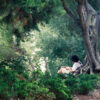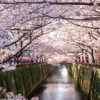This seems like an important moment – if ever there was one – to engage in reflection, conversation and active listening about what is going on in America. Every time we think we’ve reached a peak in terms of urgency for this to occur, a new incident reminds us that there is a lot of really difficult work ahead of us. Difficult days. Tough conversations. Hard lessons to learn – or re-learn. In that spirit, our correspondent Julie Chang Murphy has curated a list of the best, most essential, non-fiction books to read right now about the Asian American experience, including memoirs, essays and histories. So much has already been said – and yet this relatively new crop of books holds additional wisdom and truths that we all really need to hear.
11 essential books to read in 2021 about the Asian American experience
The rise of anti-Asian violence during the pandemic was not taken seriously until the targeted murders of six Asian women in Atlanta thrust the issue into the national spotlight.
And everyday now it seems that we are waking up to more reports of men and women of Asian descent (many of them elderly and the most vulnerable), being choked on the subways and beaten in broad daylight while bystanders do nothing.
My Asian friends and I have strategized about how to obtain pepper spray, which is illegal to purchase in New York, while others are simply too scared to leave their homes. This is America.
[white_box]Join our community
For access to insider ideas and information on the world of luxury, sign up for our Dandelion Chandelier newsletter. And see luxury in a new light.
sign up now >
[/white_box]
Many Americans are now finally seeing another layer of racism — beyond black and white — in our complicated society.
The stereotype of the “model minority” has, in many ways, resulted in the assumption that Asian Americans are white-adjacent. And thus, benefit from the privileges afforded to the dominant caste. This ignores the vast socioeconomic divides in the Asian diaspora.
The violence occurring now exposes an uncomfortable truth: that Asians are not seen as Americans. Our Asian features make us a perpetual foreigner, no matter how educated or assimilated we are.
[white_box]Join our community
For access to insider ideas and information on the world of luxury, sign up for our Dandelion Chandelier newsletter. And see luxury in a new light.
sign up now >
[/white_box]
Can reading a book by an Asian American author bring about any meaningful change? Why do these reading lists persist after race-based tragedies?
When the country’s problems seem overwhelming to the point of paralysis — picking up book and reading from another perspective is an accessible way to give yourself the language to make sense of deep, structural issues.
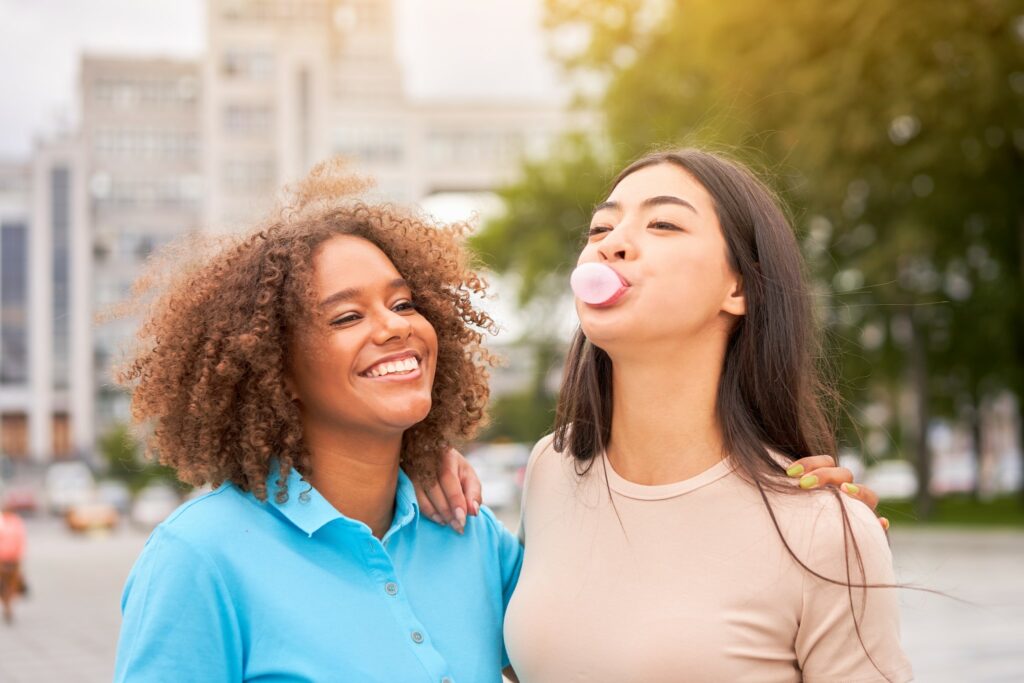
What to read in non-fiction books about the Asian American experience, including memoirs, essays and histories.
In the case of Asian American writing, it might even be radical. Asian American authors and history are almost never part of the curriculum in elementary or high schools in the U.S. And even in colleges across the nation, Asian American writers are usually only found on a syllabus in a limited number of liberal arts departments.
[white_box]Related Post
riveting new books to read in 2021 about race in America
read more >
[/white_box]
As a first step to remedy this and to help you discover the sound of voices that you may not previously have heard, we are starting with non-fiction books about the Asian American experience. Here are 11 essential books amplifying the wide expanse of Asian American experiences. Read them for a better understanding of your friend, neighbor, and country.
best books to read right now about the Asian American experience
1. minor feelings by cathy park hong.

At the top of the list of the best non-fiction books about the Asian American experience is this authentic and important one, I have been recommending Korean American poet, Cathy Park Hong’s book Minor Feelings of provocative and subversive essays to anyone who would listen since it came out last year. I wasn’t surprised when she won the National Book Critics Circle Award for Autobiography last week.
Her book is revolutionary and fearless in its portrayal and analysis of the Asian American consciousness. It expertly weaves together seemingly disparate themes. This includes her hemifacial spasm to a cultural analysis of Richard Pryor’s comedy to the Immigration and Nationality Act of 1965 and her fierce female friendships. And much more. The seven essays – as great works of art ultimately do- dismantle power and challenge the reader to reckoning and revelation.
2. know my name by chanel miller.
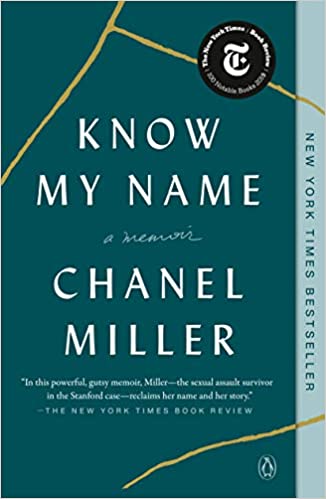
Chanel Miller, who is biracial (half-Chinese and half-white) was known as Emily Doe when her victim impact statement went viral in the infamous Brock Turner case. I was taken aback when Miller revealed her identity as Asian American (as was novelist Lisa Ko, who wrote about her reaction to the news in The New York Times). I thought of her courageous and beautiful memoir Know my Name after the Atlanta murders, which has been chosen as a Best Book of 2019 by publications like the The New York Times Book Review, The Washington Post, TIME, and Elle.
Her experience, like the Asian women who were murdered, is at the intersection of racism and sexism. As she writes, she was “used to being unseen, to never being fully known. It did not feel possible that I could be the protagonist.” Her words will help heal and fortify those who are hurting.
3. passing it on by yuri kochiyama.
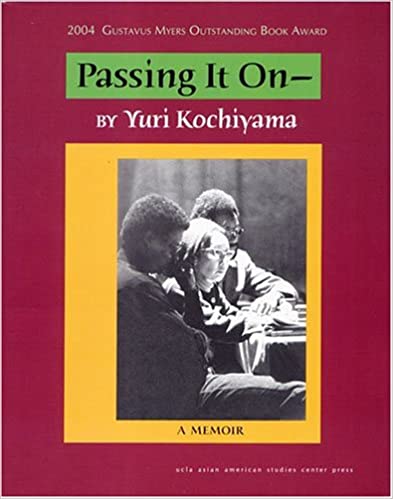
I’d be willing to bet that most Americans cannot name one Asian American activist. Let’s change that! It matters for both Asian Americans who might not see themselves as activists and for other marginalized groups who might not be aware that there has been a history of solidarity between us. That’s why this 2004 book remains one of the best non-fiction books about the Asian American experience I have read.
Yuri Kochiyama lived through the Japanese internment camps. She advocated for the rights of political prisoners, Puerto Rican independence, and other social justice and civil rights movements. As a close friend of Malcolm X, she is still remembered for cradling his head after he was shot by an assassin’s bullet. This memoir Passing It On was written when she was 77, as a legacy to leave to her grandchildren and eloquently expresses her personal values and resolve in living an activist’s life.
4. the next american revolution by grace lee boggs.
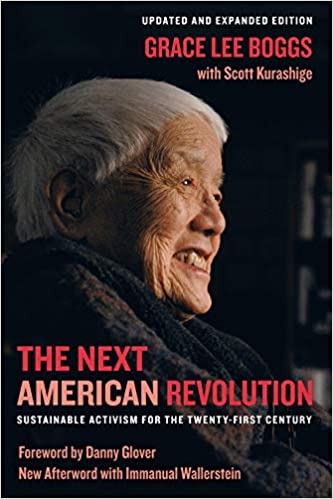
Another Asian American activist icon to know is Grace Lee Boggs. Born in Rhode Island, she was the daughter of Chinese immigrants. Her work has contributed to all of the twentieth century’s major social movements—for civil rights, women’s rights, workers’ rights, and more. This book The Next American Revolution is a manifesto for creating alternative modes of work, politics, and human interaction. It will collectively constitute as the next American Revolution.
[white_box]Related Post
The best books now about black lives and race in America
read more >
[/white_box]
5. all you can ever know by nicole chung.
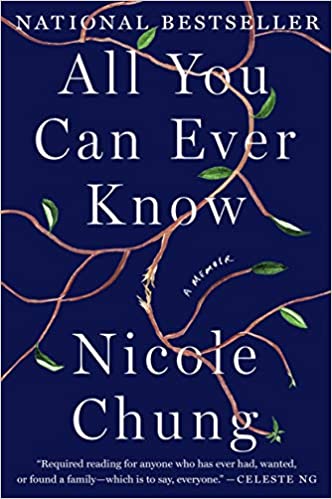
Nicole Chung’s memoir centers her experience as a Korean American adoptee raised by white Catholic parents in a sheltered Oregon town. She goes in search of her birth parents as she is about to give birth to her first child. She considers the perspectives of everyone involved in her adoption story. A finalist for the National Book Critics Circle Award for Autobiography, Chung’s book All You Can Ever Know explores themes of race, heritage, and family with nuance and compassion.
6. the making of asian america: a history by erika lee.
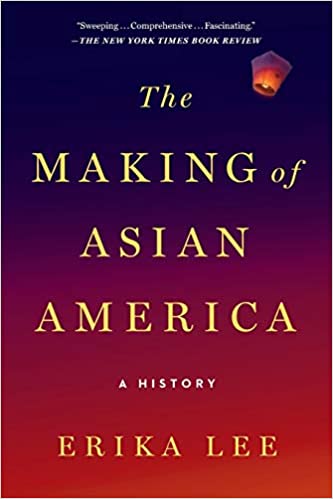
Erika Lee is a historian of immigration and professor at the University of Minnesota. She wrote this book as a comprehensive view of Asians in America. From Chinese laborers in 1850s California to Hmong refugees in 1980s Minnesota, Lee presents a rich and complicated narrative. This is of the often invisible histories of Asians in the United States. She explores their struggle as both “despised minorities” and “model minorities”, She reveals all the ways that racism has persisted in their lives. Though it is a work of incisive scholarship, her vivid storytelling of The Making of Asian America makes the material read like the best page-turners.
7. sigh, gone by phuc tran.
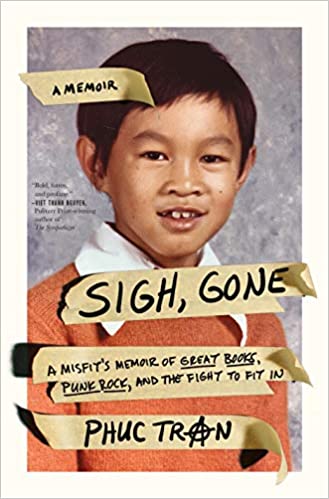
In 1975, during the fall of Saigon, Phuc Tran immigrates to America along with his family. They land in Carlisle, Pennsylvania. This irreverent and moving memoir traces Tran’s coming-of-age against the hairspray-and-synthesizer backdrop of the ‘80s. Here the members of his family were “symbols of a painful and confusing war…of the people who had shot at them and killed their friends, brothers, and sons.” In Sigh, Gone, he finds redemption and inspiration through classic literature (misfit characters like Hester Prynne and Gregor Samsa), punk rock, and plenty of humor.
8. dear girls by ali wong.
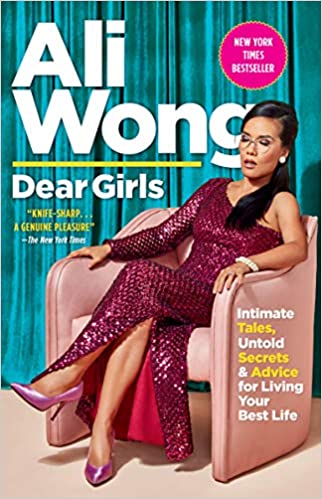
In her runaway hit Netflix stand-up special, Baby Cobra, Ali Wong described herself as half fancy Asian and half jungle Asian. The world had never seen a pregnant Asian women making such bold and later, raunchy jokes. In Dear Girls, Wong writes in this same fierce and absurdly funny voice in a series of letters to her daughters. Topics include the unpleasant details of dating, how to be a working mom in a male-dominated profession, reconnecting with her roots in Vietnam, and how she trapped their dad.
9. how to write an autobiographical novel by alexander chee.
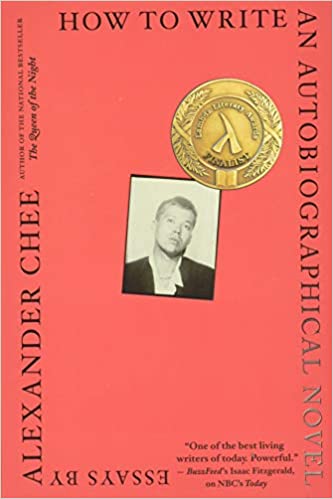
Korean American novelist, Alexander Chee, examines his most formative experiences as a bi-racial gay man in this collection of lyrical and poignant essays. The title is a bit misleading. There are writer’s tips for aspiring scribes (including a defense for controversial MFA creative writing programs.) But more than this, Chee recounts his struggle to come to terms with his ethnic identity. He also struggles with his father’s deadly car accident, sexual abuse, and the AIDS epidemic. How to Write an Autobiographical Novel is one of those books that you can flip to any page and gain wisdom from.
[white_box]Related Post
The irresistibly powerful 20 best books of the year 2020
read more >
[/white_box]
10. long live the tribe of fatherless girls by t. kira madden.
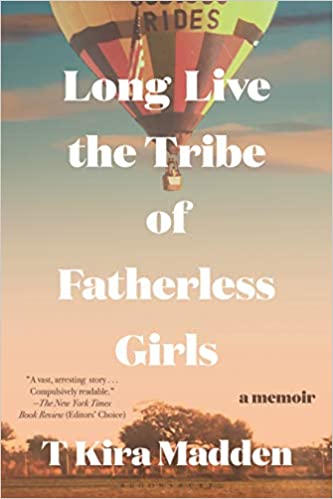
Kira Madden’s coming of age memoir, Long Live the Tribe of Fatherless Girls is a study of contrasts. On the surface, she is a privileged equestrian at an exclusive Boca Raton private school. But inside, Madden is a queer, biracial teenager. She is the only child of a Chinese-Hawaiian mother and Jewish father, both who continually battled drug and alcohol addictions. It spans from 1960s Hawai’i to the present-day struggle of a young woman mourning the loss of a father. Madden’s book is equal parts eulogy and love letter. Her story, as specific as it is, succeeds in being a mirror for broader concerns of family bonds, trauma and racism.
11. yell-oh girls! edited by vickie nam.
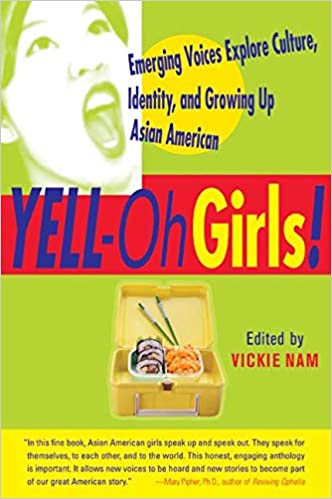
This important anthology features a collection of stories, essays, poems and letters. They are from young Asian American girls between the ages of 15-22. Their passionate entries cover everything from body image to interracial friendship and dating. It also convers adoption, “model minority” stereotypes, Asian-American feminist activism, sexuality, language and white boys’ “Asian fetish.” Yell-Oh Girls! Emerging Voices Explore Culture, Identity, and Growing Up Asian American is a must have for decolonizing the bookshelf.
best non-fiction books about the Asian American experience
That’s our take on the best, most essential, non-fiction books if you’re wondering what to read right now about the Asian American experience, including memoirs, essays and cultural histories.
One phrase I’ve heard over and over from well-meaning friends since the rise of anti-Asian violence is “I can’t imagine how you’re feeling.” I think any one of these books will help build one’s capacity for understanding. It will also build a vocabulary for talking about racism towards Asians. In naming it, we can strive towards a reality where we recognize the humanity of all Asian Americans.
join our community
For access to insider ideas and information on the world of luxury, sign up for our Dandelion Chandelier Newsletter here. And see luxury in a new light.
This article contains affiliate links to products independently selected by our editors. As an Amazon Associate, Dandelion Chandelier receives a commission for qualifying purchases made through these links.
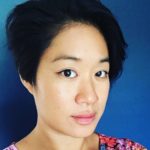 Crediting her training as a cultural anthropologist at Wellesley College, Julie has immersed herself in various industries in the last 15 years including fashion design, event planning, and fitness. Julie lives in New York where she loves trying every ramen and dumpling restaurant with her husband and three children. She finds joy in bold prints, biographies of fierce women, kickboxing. And spending way too long finding the perfect polish color to express her mood.
Crediting her training as a cultural anthropologist at Wellesley College, Julie has immersed herself in various industries in the last 15 years including fashion design, event planning, and fitness. Julie lives in New York where she loves trying every ramen and dumpling restaurant with her husband and three children. She finds joy in bold prints, biographies of fierce women, kickboxing. And spending way too long finding the perfect polish color to express her mood.



